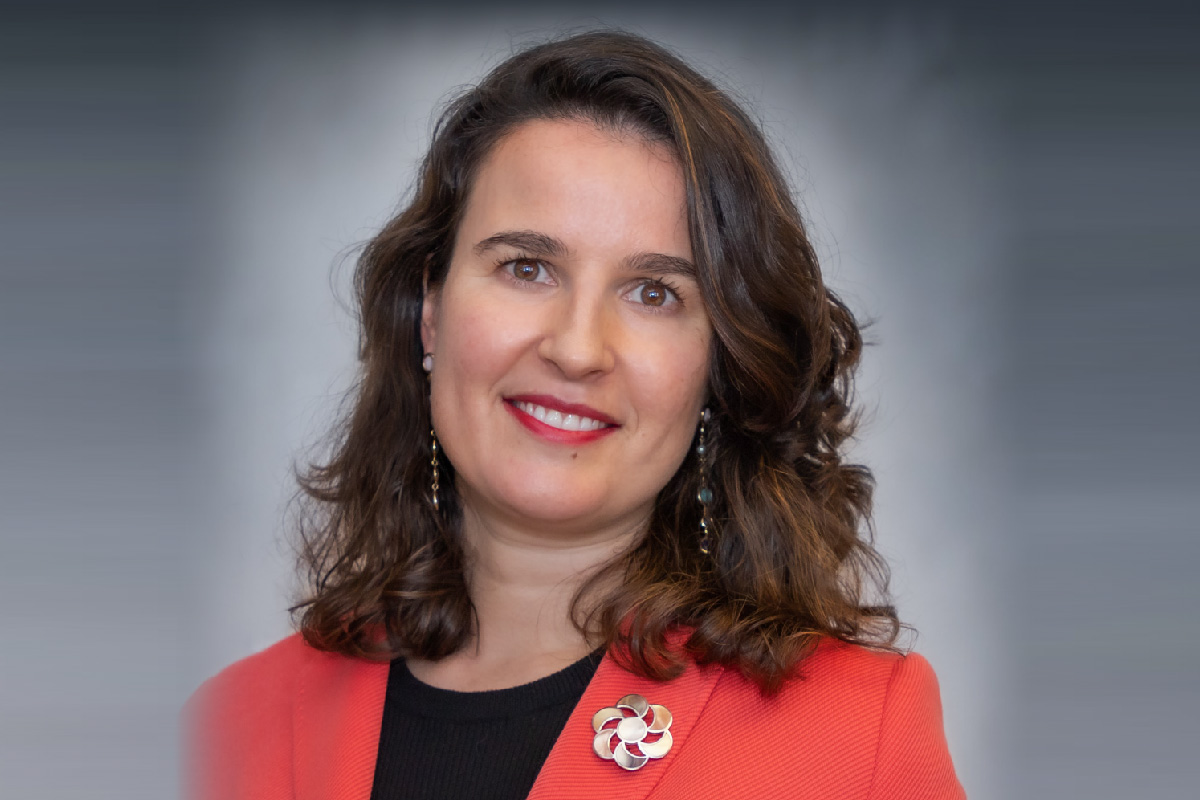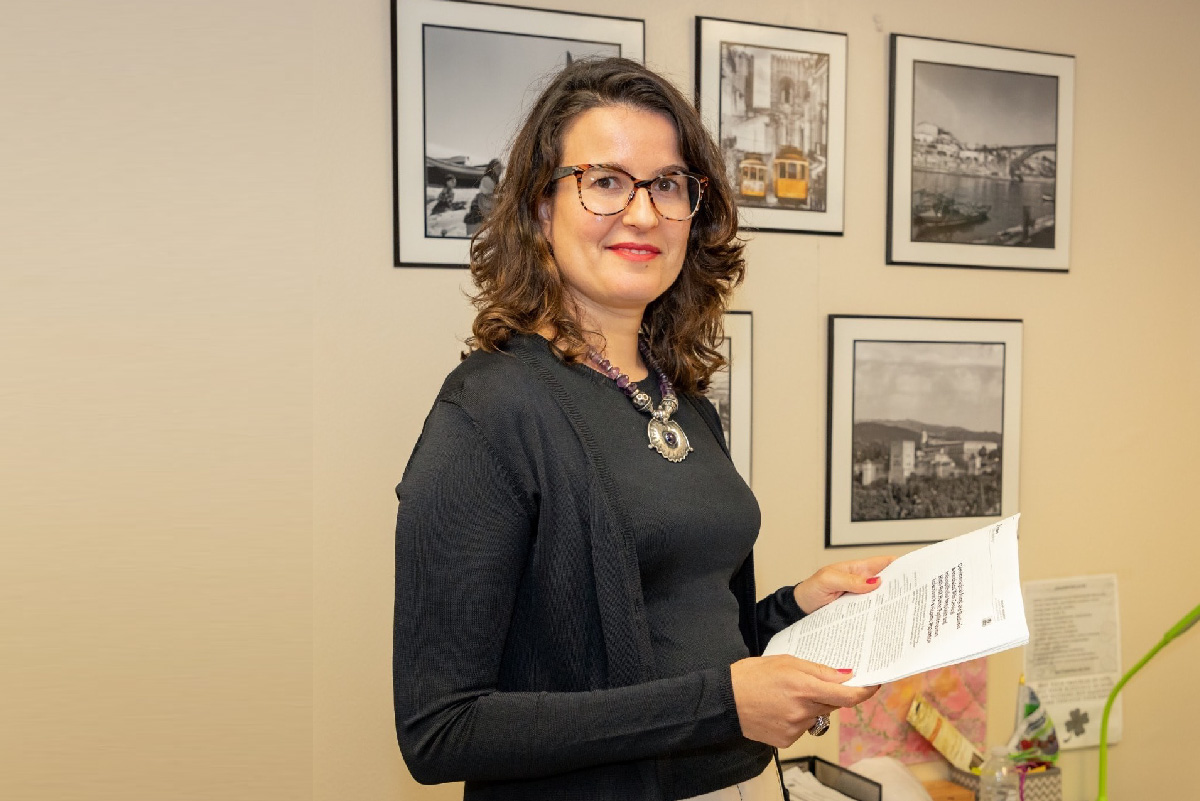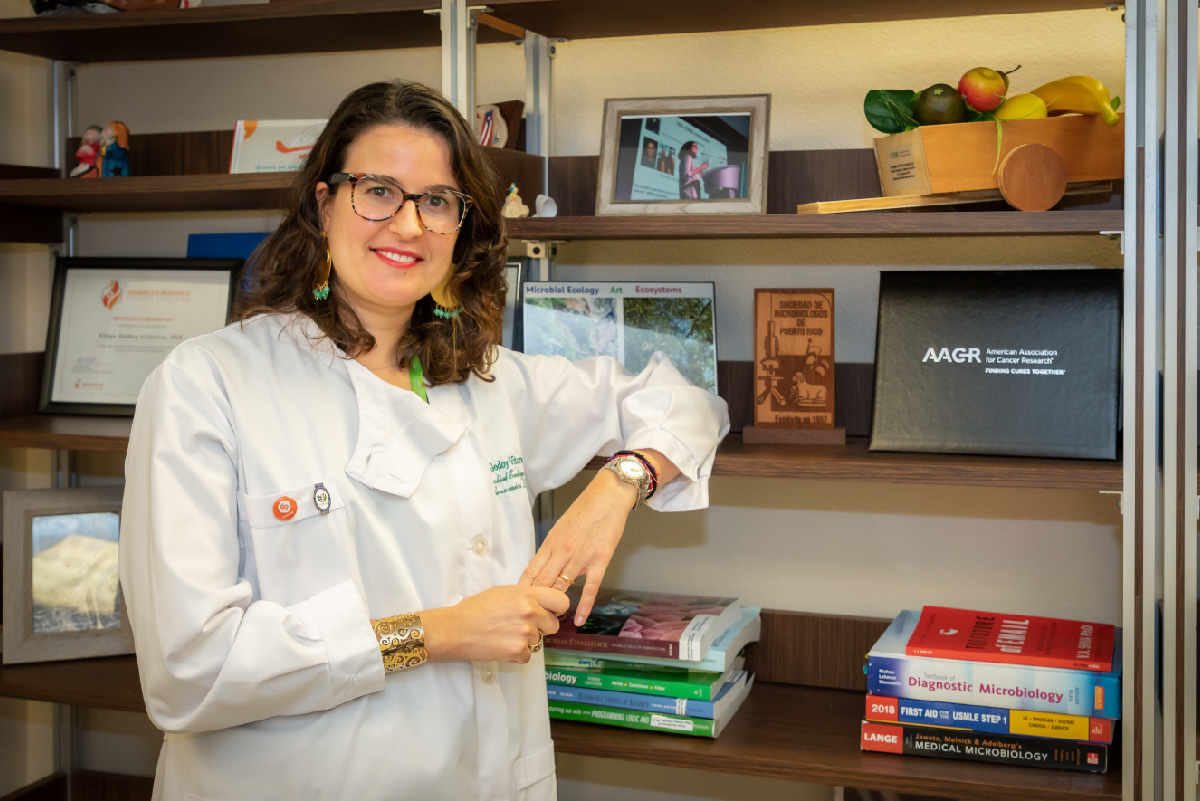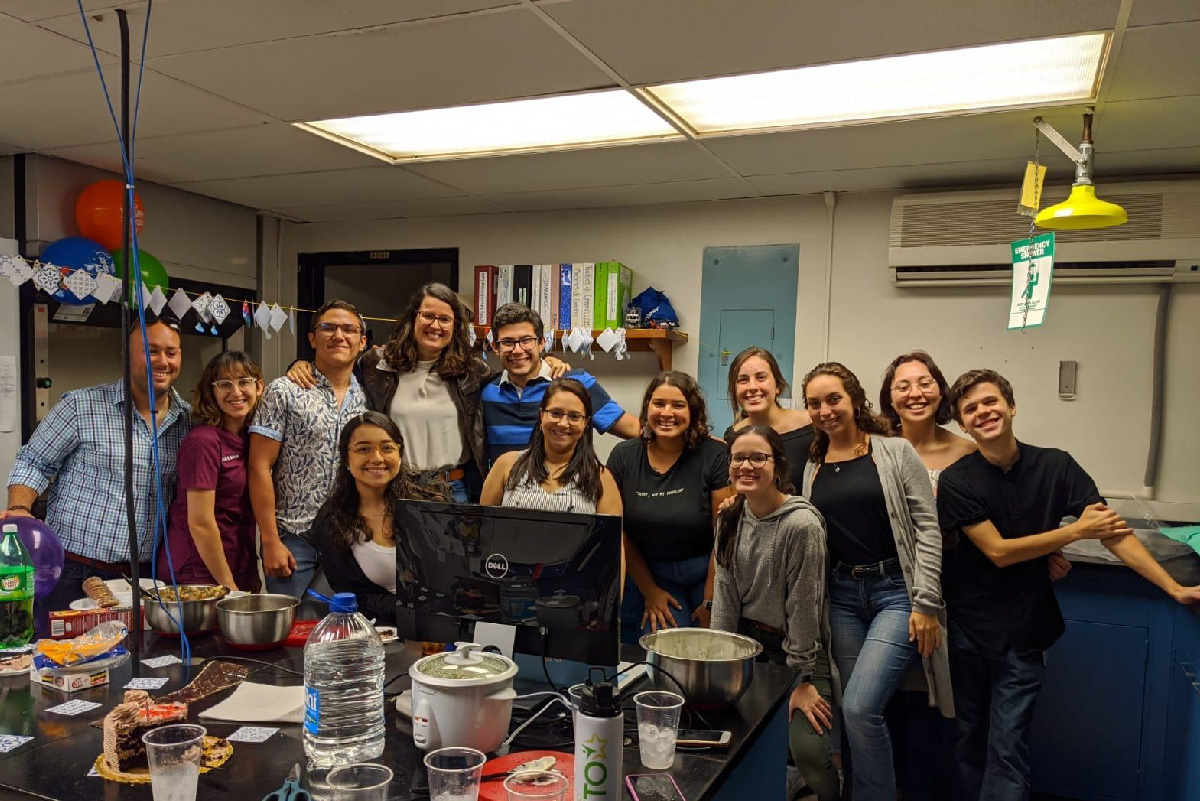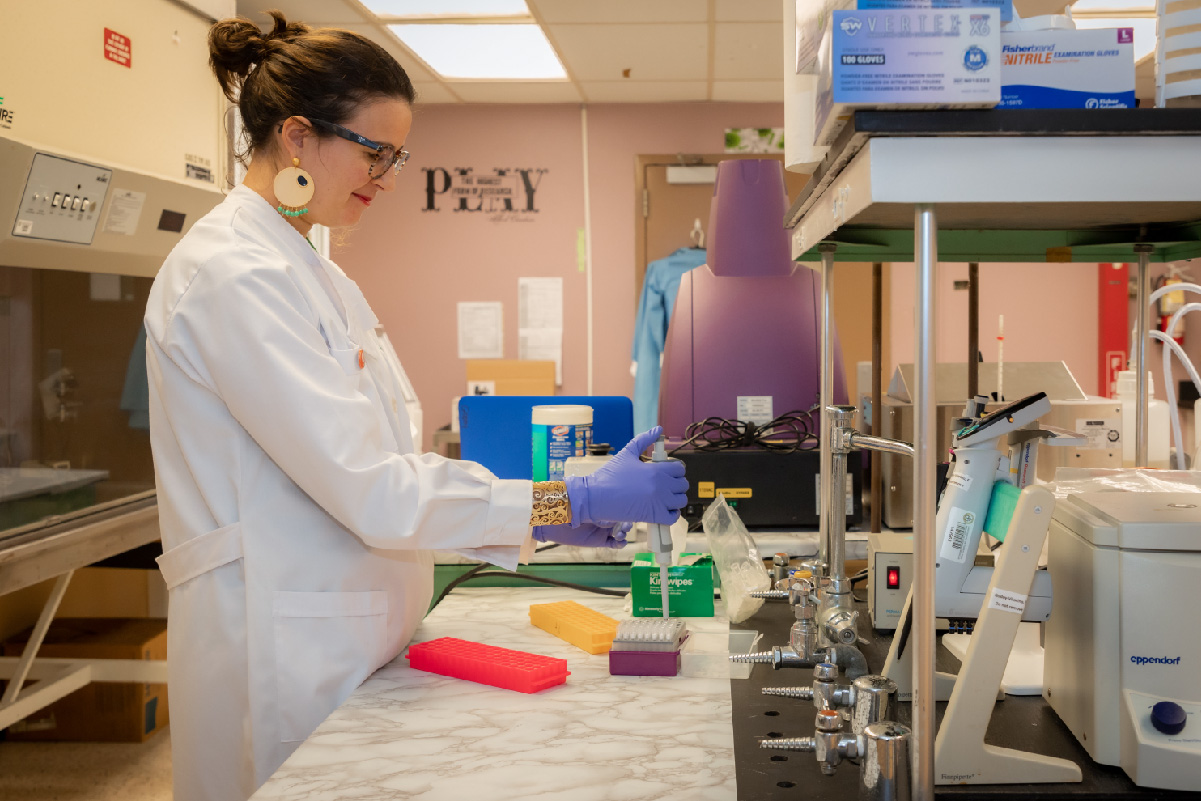
Quick Facts
- Name: Filipa Godoy-Vitorino
- Comes from: Portugal (most precisely from Cartaxo, Ribatejo- Portugal’s second-largest wine region, and known for being also the horse country (home of Lusitano horses).
- Lives in: Caguas, Puerto Rico
- Leisure time activities: read, listen to music, spend time with family (including conference calls)
- Likes: all animals (own a cat), music (all music but especially jazz, bossa, fado, grunge and punk), design (such as Portuguese jewelry, architecture and interior design), photography and gems.
- Unsuspected talent: I like to sing, poetry, I used to paint (not something I do now), grow herbs and bake bread
- Currently reading: “21 lessons for the 21st century” by Yuval Noah Harari (an amazing Israeli thinker and historian)
In a nutshell
- My research matters because…Microbiomes rule our health
- One of the inspirations for my research has been…contribute to the knowledge of biodiversity
- The best thing about my job is…allowing me to be creative and work with a variety of researchers and students
- My career highlight so far has been…becoming Ambassador for the International Society for Microbial Ecology – a responsibility to educate on the microbiome
- My advice to aspiring researchers is…work hard, be generous and never give up!
Take a look at Dr Godoy’s American Society for Microbiology highlight here:
https://asm.org/Videos/Microbiology-Is-Your-Microbiome,-Your-Health
Filipa Godoy-Vitorino, Ph.D.
Chair
Dept. Microbiology and Medical Zoology
Associate Professor and PI Microbiome Lab
University of Puerto Rico, School of Medicine
